Projects financed with Green Deposits
.png)
100%
Percentage of deposits used in green projects
Environmental and climate issues are of central importance to us at Arion Bank. We want to ensure that we have a comprehensive overview of the environmental impact of our day-to-day activities and to minimize the negative aspects. We realize that the greatest impact that banks can have on environmental and climate issues is through lending and investment and we take this responsibility seriously.

We have made good progress in reducing carbon emissions from the Bank’s own activities in recent years and we will continue in this direction. In the first few years after Arion Bank became a signatory to the City of Reykjavík and Festa’s Declaration on Climate Change in 2015 our focus was mainly turned inwards, that is to say increasing awareness and understanding of environmental and climate change issues among our employees. These efforts included a campaign to reduce food waste and to improve waste sorting by publishing reports and encouragement on the Bank’s intranet and by holding talks on the topic. We have reported on our achievements in reducing emissions every year since 2016.
We are proud of our green journey, and our focus on environmental and climate issues is being increasingly embodied in the Bank’s range of services and products. Moving the management of financial resources in the direction of green development and the circular economy is hugely important in the fight against human-induced climate change and we intend to follow this trajectory.
New green products have been launched and a comprehensive green financing framework for Arion Bank is currently being created which will be used as a basis for even more new green products, communicating with our customers on environmental and climate issues and green bond issues.
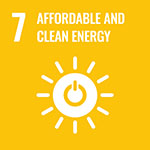
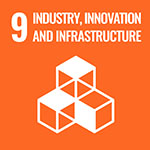
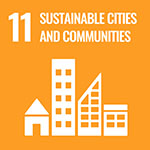
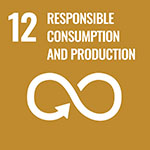
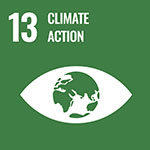
In June 2020 Arion Bank announced the launch of a new green deposit account, which we call Green Deposits, the first Icelandic bank to offer such an account. Green Deposits is a new savings account designed for individuals, NGOs and companies wanting to contribute towards a greener future. The account is a non-indexed, demand account, which means you can withdraw your money whenever you want. One of the fundamental roles of banks is to facilitate the flow of funds from savers to borrowers, and deposits are central to this function. Money deposited into Green Deposits is invested in green projects in line with Arion Bank's framework on green deposits.
Initially the deposits were used to finance the Bank’s green car loans, i.e. to finance investments by customers in cars which use renewable energy and which meet certain criteria on emissions. The popularity of the account meant that it was possible to expand the deposit framework at the end of the year to finance more types of green assets, and by then the Bank’s customers had invested ISK 5 billion in Green Deposits. New projects included ones involving the circular economy and pollution prevention and control.
The company CIRCULAR Solutions has assessed the Bank’s green deposits framework – see assessment of CIRCULAR. It is an independent body whose role is to perform an annual assessment of the extent to which the funded projects have met the terms of the framework. CIRCULAR also assesses the environmental impact of Green Deposits.
By putting savings into a Green Deposits account Arion Bank and our customers are supporting the UN Sustainable Development Goals 7, 9, 11, 12 and 13.
Seeing the positive environmental impact of lending to green projects provides great incentive and motivation. By investing in Green Deposits at Arion Bank our customers are making a positive contribution to the future.
On 31 December 2020 the total amount in Green Deposits was ISK 5,111,603,279.
All of these funds were used to finance projects which are defined in the Bank’s framework as green deposits. The financing of these projects prevented an estimated 22,000 tons CO2e tons of greenhouse gas emissions in 2020. This is equivalent to the annual emissions from 10,000 vehicles powered by fossil fuels. Together we make good things happen.
Projects financed by green deposits | Amounts | Estimated reduction in GHG and/or emissions of GHG prevented each year (tCO2e). Total financing of projects | Of which estimated reduction in GHG and/or emissions of GHG prevented each year (tCO2e) due to loans financed by Green Deposits |
|---|---|---|---|
Pollution prevention and better waste management | 3,201,603,279 | -43,246 | -21,705 |
Transition to green energy in transport | 1,910,000,000 | -967 | -546 |
Total | 5,111,603,279 | -44,213 | -22,251 |
.png)
Percentage of deposits used in green projects

Estimated decrease which is equivalent to the annual emissions from 10,000 vehicles powered by fossil fuels
.png)
tCO2e
Estimated reduction in GHG and/or emissions of GHG prevented each year because of green financing

Loans to buy green vehicles which meet strict criteria on emissions according to the Bank’s green framework
For Pollution prevention and control the impact was assessed by defining the base criteria for each category of waste in terms of disposing in landfill and/or increased exploitation of natural resources instead of using recycled waste.
For Clean transportation the impact was assessed by calculating emissions of greenhouse gases compared with vehicles of a similar size and age powered by fossil fuels. Vehicles’ emission coefficients are taken from the Icelandic Vehicle Registry.
CIRCULAR’s confirmation of the impact analysis for Green Deposits
Customers do not pay any loan origination fees for financing cars which run entirely on electricity or other 100% renewables. There is a 50% discount on origination fees on loans for hybrid vehicles which emit less than 99g/km in carbon dioxide equivalents.
In October 2020 Arion Bank announced that customers buying environmentally certified housing would get a 100% discount on loan origination fees. This applies to housing certified by one of the following: Swan Ecolabel, BREEAM - Very Good and LEED Gold. This is an innovation on the Icelandic financial market where the availability of environmentally certified housing is limited. The goal of green mortgages is to provide the incentive to build more environmentally friendly and certified housing.
In 2018, Institutional Asset Management introduced rules of procedure on responsible investment which incorporate the three basic criteria of sustainability: environmental, social and governance. In recent years Institutional Asset Management has carried out an analysis of non-financial information relating to Icelandic companies listed on the main market of Nasdaq Iceland. See here for further details.
In September 2019 Arion Bank became a signatory to the Principles for Responsible Banking (PRI) which were devised by UNEP FI and 30 international banks. These principles underline the importance of aligning banking with international goals and commitments such as the UN Sustainable Development Goals and the Paris Climate Agreement. Arion Bank was one of the first banks to announce its support for the principles, with 130 banks from 49 countries signing up.
In order to better align ourselves with PRB and the goals of the Paris Climate Agreement the board of directors of Arion Bank approved an ambitious new environment and climate policy and targets which are designed to support Arion Bank’s commitment to being by example in environment and climate issues. In addition, at the beginning of 2020 the executive committee of Arion Bank approved six Sustainable Development Goals which the Bank intends to focus on. More information on the progress of the implementation process can be found in the PRB progress report.
We aim to be a role model on environmental and climate issues and to minimize greenhouse gas emissions and the negative environmental impact of our activities. Man-made global warming is one of the greatest threats facing us today and we want to contribute to efforts to ensure that Iceland can meet its obligations under the Paris Climate Agreement and other local and international environmental and climate agreements, which includes limiting global warming to well under 2°C, preferably 1.5°C.
Banks perform a vital role in providing funding for progress and Arion Bank wants to be a force for good. Our focus is on financing projects on sustainable development and green infrastructure and we will evaluate our loan portfolio according to green criteria and set ourselves ambitious targets in this respect.
We also require our suppliers to take into account the environmental and climate impact of their activities. When comparing similar offers from suppliers, environmental and climate considerations will be decisive in our decision. The Bank’s goal is to reduce emissions of carbon dioxide and other greenhouse gases from our activities by at least 40% by 2030 and to carbon offset all these emissions.
We are setting ambitious targets and will publish the results of our progress in areas where we have the greatest impact, such as buying, our own activities and the services we provide to our customers. We endeavour to improve our employees' knowledge and understanding of environmental issues and to support our customers' journey towards a green future in accordance with the UN Sustainable Development Goals.
In 2020 we will evaluate the Bank’s loan portfolio according to green criteria and establish targets in this respect.
Status: The evaluation of the Bank’s loan portfolio progressed well in 2020 and the results of the evaluation indicated that 20-30% of loans in Corporate Banking could be categorized as green. The aim is to complete the green framework in 2021. When the framework is in place we can set quantifiable goals on how to increase the percentage of green loans.
In 2020 we will adopt a policy on loans to individual sectors which takes into account environmental and climate considerations.
Status: When the green financing framework is ready, we will set a policy for individual sectors. The Bank’s credit policy was updated in 2020 with an added emphasis on sustainability.
From 2020 we will ask our main suppliers about the environmental and climate impact of their activities.
Status: At the beginning of 2020 a new suppliers’ assessment was introduced and all the largest suppliers with whom the Bank has made outsourcing agreements underwent the assessment. The Bank then began to ask new suppliers about their performance with respect to equality, labour laws and environmental and climate issues. At the end of 2020 a code of conduct for suppliers was approved and it will be introduced in 2021.
Before the end of 2022 we are going to measure the carbon footprint of the loan portfolio and subsequently set ourselves a goal of how to reduce the footprint up to 2030 in accordance with the Paris Climate Agreement.
Status: Has not started yet.
From 2023 the Bank will no longer buy vehicles which do not run on 100% renewable energy.
Status: We have already replaced some of our fleet with electric vehicles but as yet not all of our vehicles run on 100% renewables.
We intend to increase the ratio of sorted waste produced by the Bank to 90% by 2023.
Status: Due to waste sorting and processing errors relating to construction work at headquarters in 2020, the Bank’s sorting ratio went down by almost 33% during the year. Efforts will be made to improve the process in 2021 and we still aim to reach 90% by 2023.
The Bank’s goal is to reduce emissions of carbon dioxide and other greenhouse gases from our activities by at least 40% by 2030 and to carbon offset all these emissions.
Status: The reduction in the Bank’s emissions from its own activities, i.e. from its business premises and vehicles, is 34.7% since 2015 which is the Bank’s reference year. The Bank has entered into an agreement with the Iceland Carbon Fund on carbon fixation to offset emissions from the Bank’s activities and other emissions such as flights, taxi journeys, waste and employee journeys to and from work.
The highlights of the environmental accounts for 2020 can be seen here. Detailed results of the environmental accounts can be found in the table of non-financial information.
Non-financial information
Total emissions of greenhouse gases from own activities, i.e. from vehicles and business premises, have decreased by 34.7% since 2015 (Scope 1 and 2). Of this total, total emissions from vehicles decreased by 55.4% and from business premises by 15.8%. The main opportunity for further reducing emissions from the Bank’s activities is to stop buying fuel for vehicles. The Bank will not buy vehicles from 2023 unless they run on 100% renewable energy. This is part of the Bank’s effort to reduce emissions from its own activities by at least 40% by 2030.
We have set ambitious targets on reducing greenhouse gas emissions by 2030, and every year we will take measures to carbon offset our activities. We are teaming up with Iceland Carbon Fund to plant around 4,700 trees to offset emissions from our own activities for 2020, i.e. business premises and vehicles, and also from flights, taxi journeys, waste and employee journeys to and from work. In addition Arion Bank has provided financial support to the Icelandic Forestry Association for many years.
Enhanced data collection has enabled us obtain better information on acquired services (Scope 3). In 2015-2018 international flights, flights by contractors, flights with international airlines, taxi journeys and data destruction have been added to the Bank’s environmental accounts, which partly explains why recorded total emissions of greenhouse gases from acquired services have increased during the period.
Recorded total emissions in Scope 3 have increased between 2019 and 2020 despite the massive drop in flights and other components of the scope. This year employee journeys to and from work were added to this item, or 198 tCO2e. After subtracting employee journeys, the decrease in Scope 3 between 2019 and 2020 was 52.8%.
Flights decreased significantly between 2019 and 2020, mainly as a result of the COVID-19 pandemic.
Due to waste sorting and processing errors relating to construction work at headquarters in 2020, the Bank’s sorting ratio went down by almost 33% during the year. Efforts will be made to improve the process in 2021 and we still aim to reach 90% by 2023.
At the end of the year a survey was sent out to all employees asking them about how they travel to and from work. According to the survey 79% of employees primarily use a car, 15% ride a bicycle or walk and 6% use public transport. The majority of drivers use fossil fuels in their vehicles, or 77%, while 23% use more environmentally friendly vehicles.

decrease in greenhouse gas emissions from work vehicles
.png)
decrease in greenhouse gas emissions from business premises

trees planted
to offset emissions

of employees used the travel allowance
.png)
tCO2te
total emissions from employee journeys
.png)
kgCO2e
average emissions per employee from journeys
Arion Bank’s environmental accounts for 2020 can be found in the section on non-financial information. Data and information in the environmental accounts are applicable to 2020 and relate to the core activities of Arion Bank, not its subsidiaries. Data from 2015-2019 is presented for comparison. 2015 is the reference year for the Bank’s efforts to reduce greenhouse gas emissions from its operations until 2030.
Data for the Bank’s environmental accounts has been effectively collected using data streams via Klappir Green Solutions. Information on waste collection, heating and electricity from places of work shared with other companies, e.g. in shopping malls, is excluded.
As more data streams were added for 2020, it was decided to recalculate data for the periods 2015 to 2019 to include the latest information. Consequently, there are some discrepancies if these accounts are compared with previous environmental accounts.
Information on emissions from employees’ journey to work is based on the results of the survey conducted by CIRCULAR Solutions.
Examples of actions taken in the business to reduce greenhouse gas emissions and negative environmental impact:
Arionbanki.is notar vefkökur til að auðvelda þér að vafra um vefinn. Sjá notendaskilmála bankans.
Samþykkja